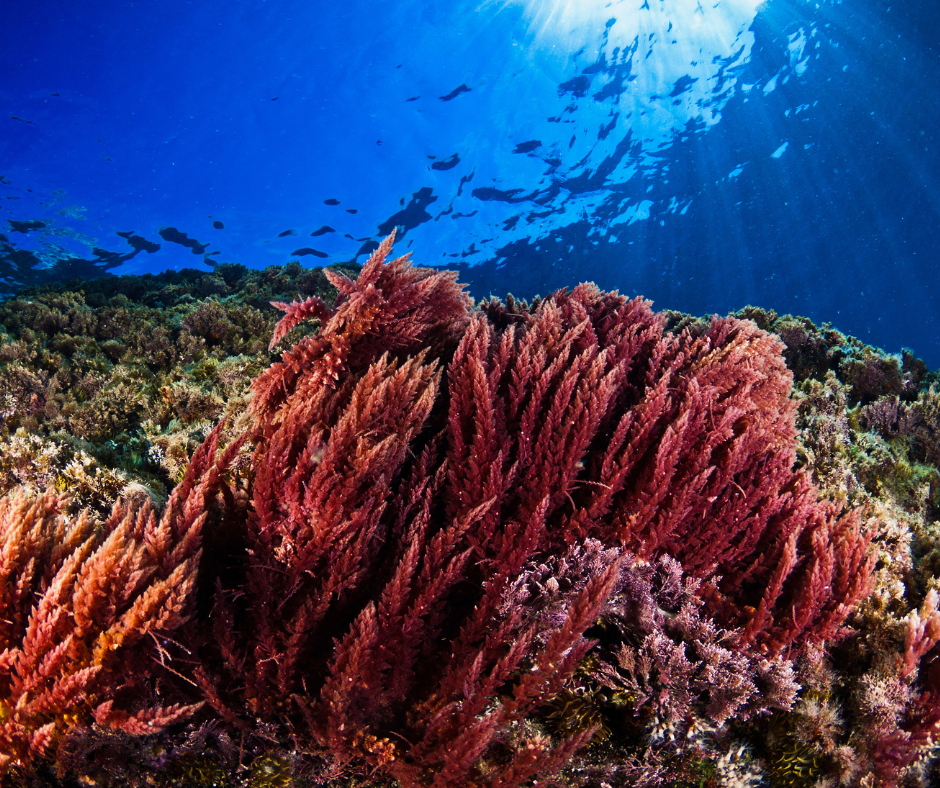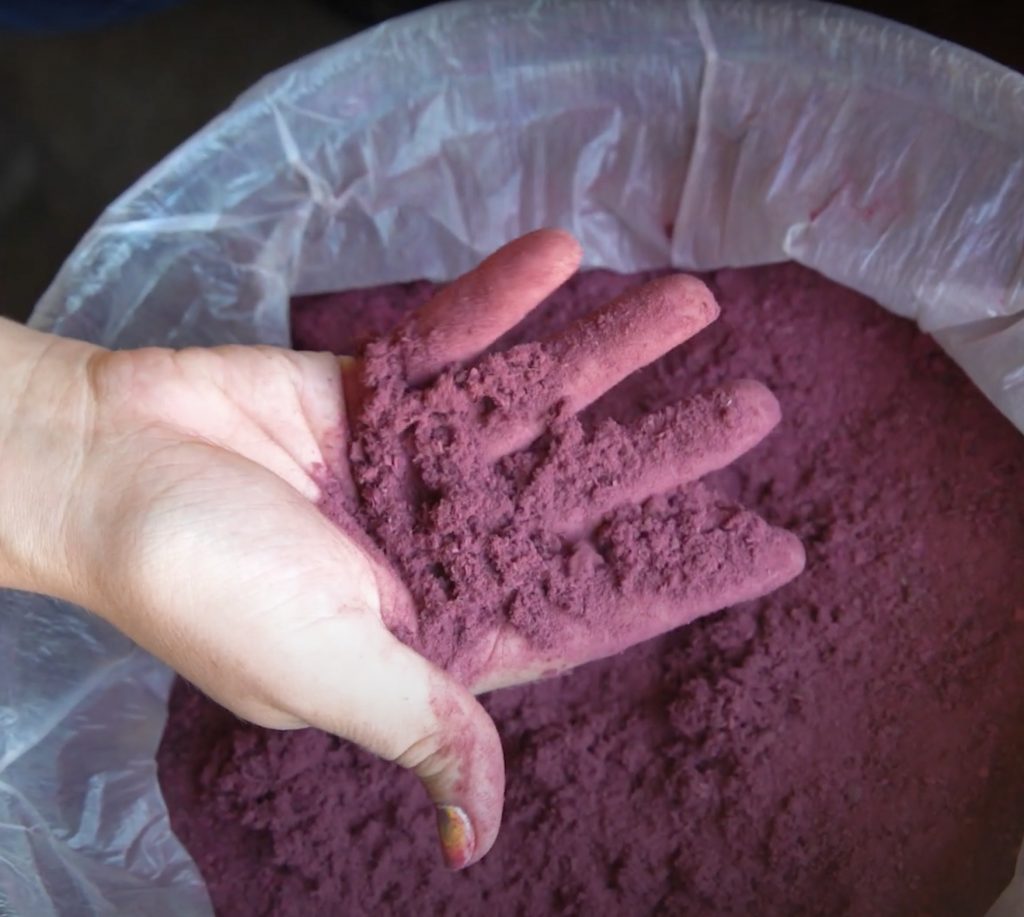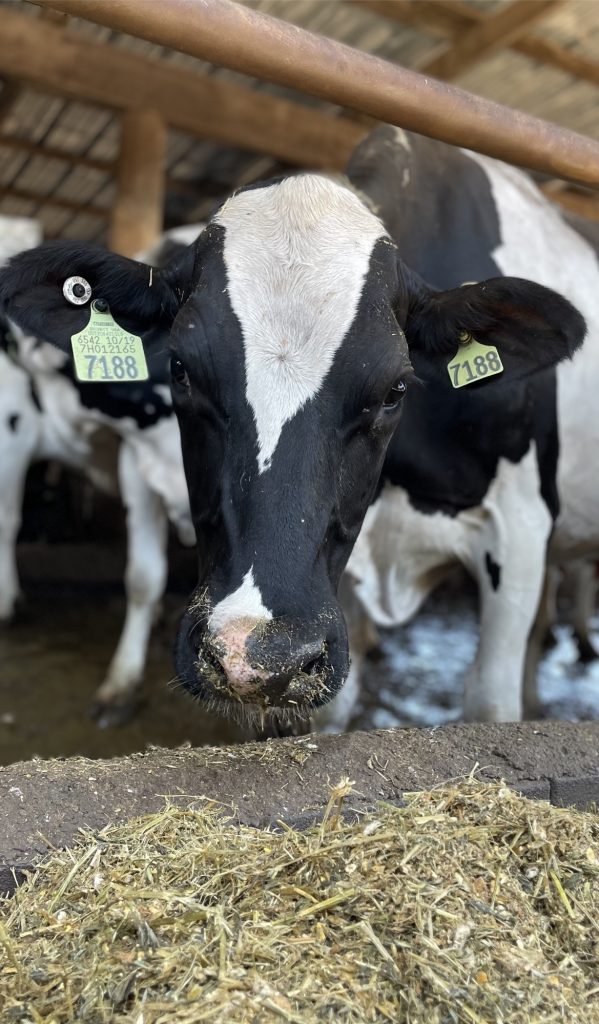
Methane gas lingers in our atmosphere for a fraction of the time that carbon dioxide does, but it is indubitably more potent, trapping up to 80 times more heat than its better-known counterpart in the first two decades after it is released. Today, with animal production on such a massive scale, research has estimated that 37% of methane emissions are the direct result of animal agriculture practices. But the future doesn’t have to remain dire.
In the last 200 years, Earth’s atmospheric methane concentration has increased by more than double. However, methane’s ability to rapidly damage global climate means that this gas also has the potential to lower Earth’s atmospheric warming potential just as quickly.
West of Los Angeles, across the Pacific in Kailua-Kona, Hawaii, one group of researchers is using seaweed to produce a new kind of livestock feed additive that, if distributed to the U.S.’s major animal husbandry operations, could cut global methane emissions drastically. Since it was founded in 2019, Blue Ocean Barns has studied the seaweed Asparagopsis taxiformis and shown it to be an unprecedentedly efficient bio-filter compared to previously studied seaweed species. Studies showed that including one ounce of Asparagopsis taxiformis in dairy cows’ 45-pound diet reduced methane emissions by up to 98%, with no impact on meat quality or flavor.
California farms answer the call
In 2022, when Blue Ocean Barns’ Asparagopsis feed additive Brominata was authorized for commercial use by the California Department of Food and Agriculture, two dairy corporations were quick to align themselves with the product. Clover Sonoma and Straus Family Creamery signed deals to start feeding Brominata to a portion of their cows, making good on their commitments to farm sustainably and reduce farm emissions.
Clover Sonoma was well aware of the emission-reducing potential of Asparagopsis because its producer relations manager, Hannah Stefenoni, who oversees Clover Sonoma’s 30 family-owned dairy farms, was one of the first to formally study the red seaweed and assess its impact on dairy cows’ emissions. That being said, the company saw the value of joining forces with Blue Ocean Barns to work towards its ultimate goal of climate neutrality, which seems to be within reach. Clover Sonoma believes that the key to finding climate solutions in the industry lies in a willingness to adopt farming new practices such as using Brominata and is hopeful that other dairy farms will be keen to do their part in contributing to climate solutions when given the chance.
Straus Family Creamery, another dairy company that has partnered with Blue Ocean Barns, was eager to test the methane-reducing potential of red seaweed. CEO Albert Straus has announced that the creamery aims to be carbon neutral by 2030, and he believes that Brominata, in conjunction with its methane biodigester and carbon-neutral farming practices, will make that goal achievable. Now, Brominata is commercially available in the U.S., and Blue Ocean Barns is working to produce enough of it for farms across the country. Once their production is to scale, Straus plans to incentivize all 12 of its certified organic family farms to incorporate it into their feed, guaranteeing them money on their milk check per pound of it they use.
American dairy farms are estimated to be responsible for just 2% of total greenhouse gas emissions in the U.S. This is because in the last 60 years, without red seaweed, improvement in animal and on-farm management efficiencies caused the industry’s emissions to fall by 45%. The scientific and corporate communities are in agreement that Brominata will play a crucial role in getting those emissions to zero and ensuring a climate-friendly future for dairy farming.
Taylor Nelson is a student at Scripps College and a former L.A. Parent intern.



























